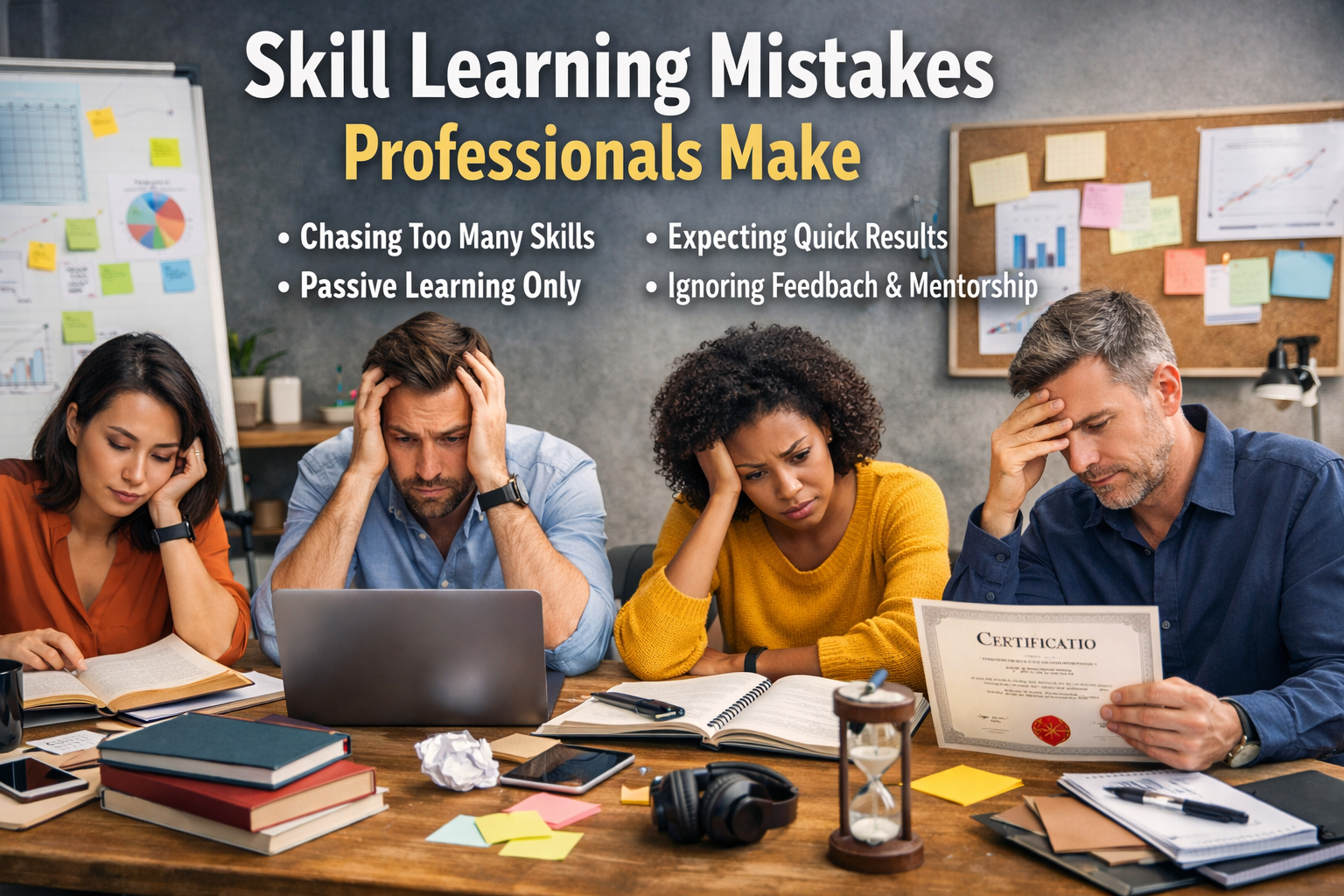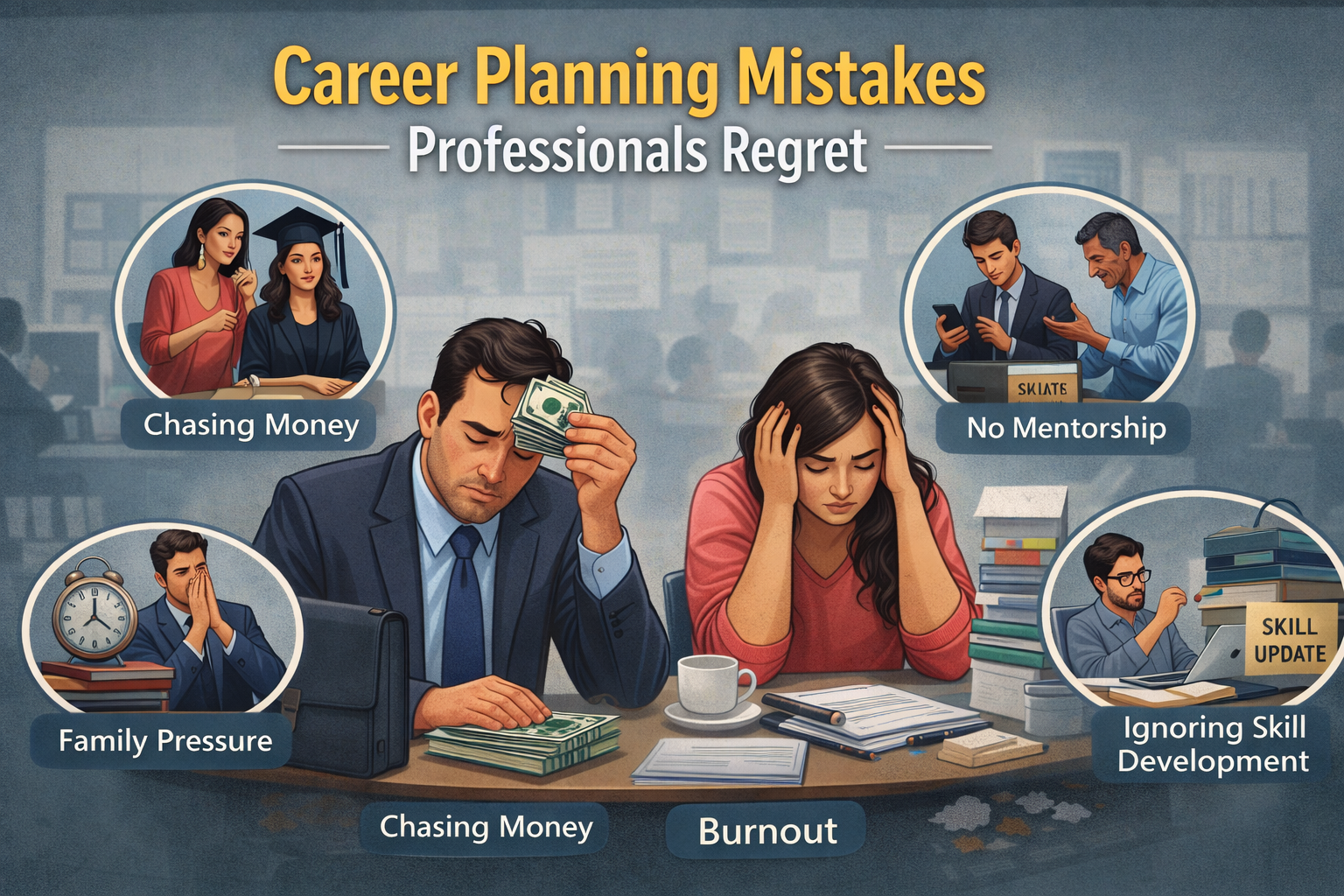Introduction
In today’s time, software development is a fast-growing career. But also, the job market has become very competitive. Having only coding skills is not enough. Now companies are doing smart hiring where tools and platforms play an important role.
In 2025, the market will be tool-driven. If you are a fresher or an early-career software developer, only applying with a resume will not work. You have to optimize your profile, build networking, and use the right job tools to increase your visibility. In this guide, we will see which job tools will best help you build a strong career and how you can use them effectively to get high-paying and right-fit jobs.
Best Job Tool Guide for Software Developer
1. Understanding Job Tools
A job tool is a platform, or website that connects candidates with employers.
These tools make the job search process easy and fast, providing candidates with the opportunity to apply for jobs that match their preferences.
How do they help developers?.
Job tools work like an accelerator for a developer. Nowadays recruiters see candidates’ visibility, credibility, and consistency. Here job tools help,
- Time saved
Job tools show you filtered and relevant job openings that match your skills. - Networking boost
These tools connect you directly with recruiter CTOs and hiring managers. - Showcase profile.
Resumes, GitHub projects, and portfolio websites can be built easily and can be shared easily. - Practice and upskill
Coding platform polishes your problem-solving skills and prepares you for an interview.
Types of job tools (job search, networking, portfolio, coding practice, interview prep).
In this competitive job market, using only one tool is not enough for a software developer. Using tools of different categories can boost your career. These 5 main types of job tools will help you make your journey smooth.
- Job search tools
These tools directly show you relevant openings. Example Hired, LinkedIn, AngelList, bestjobtool. - Networking tools
Referrals and networks are very powerful in the job market. Networking tools help you grow your personal circle. Example LinkedIn, taplio, worded, Slack. - Portfolio tools
The credibility of a developer depends on their project and work showcase. Portfolio tools give you the option to present your work attractively. Example GitHub, Behance, Wix, Carrd. - Coding practice tools
Tech interviews mostly focus on problem-solving and DSA. These tools polish your coding skills and make you ready for your real interview. Example Leetcode, Hackerrank, Codeforces. - Interview prep tools
Only skills are not enough interview confidence is also important. These tools give you mock interviews, AI-based feedback, and real-world practice. Example Pramp, Vmock, Hirevue
2. Best Job Portals for Software Developer
Best Job Tool
It is a best job tool to find relevant jobs according to your skills and interests. It is a dynamic job search platform dedicated to connecting talented individuals with leading employers across various industries.
Key features :
- Has user-friendly interface.
- Provide comprehensive resources to help job seekers find their ideal roles.
- Offer detailed job descriptions, including responsibilities, qualifications, and requirements.
- Ensure candidates have all the information they need to make informed career decisions.
Explore top job opportunities and advance your career with Best Job Tool.
AngelList
AngelList Talent is a platform specially designed for startups. Here, you can find job openings in startup companies and connect directly with founders or hiring managers. It is very popular for remote and tech-related jobs.
Key features :
- Here you can find startup jobs.
- Salary and equity details are mentioned clearly with every job posting.
- On Angel List, you can directly connect with founders or HR; there’s no middleman.
- On Angel List, you can see Indian startups as well as global startups.
Pricing :
AngelList (Wellfound) is free for job seekers to apply and connect with startups. For employers, it offers paid recruiting plans that vary based on features like advanced candidate search, job postings, and premium hiring tools.
Best for : Startup-focused tech roles.
Hirect
Hirect is a direct hiring platform where job seekers can chat directly with recruiters without any middlemen. It is designed for quick communication and fast hiring, making the job search process easier.
Key features :
- The most unique feature is that you can directly chat with recruiters and company founders.
- App uses an AI algorithm that recommends relevant jobs based on your profile, skills, and preferences.
- It is mostly designed for small and medium-sized enterprises.
- Hiring is passed because of the chat-based system.
Pricing :
Hirect is free for job seekers to apply and chat directly with recruiters. For employers, it offers paid hiring plans that include advanced features like candidate filtering, bulk messaging, and premium visibility.
Best for : Direct chat with founders/recruiters.
Naukri
Naukri.com is India’s most popular job portal that connects job seekers with recruiters. Here, you can upload your resume, search for industry-specific jobs, and set job alerts.
- This is a popular job search tool in India.
- There are thousands of jobs available for different roles and locations.
- You can upload your resume and show it to the recruiters for free.
- You can receive relevant job alerts by setting personalized job alerts.
- Recruiters can contact you directly through your profile.
Pricing:-
Free Version
Completely free to create and maintain a profile. Browse and apply for jobs. Receive job alerts. Track your applications — no fees for applying or receiving calls from genuine recruiters
Best for: India-focused fresher job listings
While not remote-specific, LinkedIn has powerful filters that allow you to find remote opportunities. It’s also a great tool for networking and personal branding.
Key features :
- You can connect with the industry experts, recruiters, and professionals.
- You can use your LinkedIn profile as a digital resume.
- You can see all the information about the company and its job openings by following them.
- You can improve your skills through LinkedIn learning courses.
- Find full-time, part-time, remote, and freelance jobs. Set up job alerts based on your interests and location.
Pricing:-
- Free Version – Create profile, connect with people, apply for jobs, post content, limited search visibility.
- Premium Career – ₹1,500–1,800/month (Best for job seekers)
- Premium Business – ₹2,200–2,900/month (Best for professionals & entrepreneurs)
- Sales Navigator – ₹4,000–4,500/month (For lead generation & outreach)
- Recruiter Lite – ₹6,200–7,500/month (For hiring & talent search)
Best for:- Job seekers, professionals, freelancers, recruiters, and business owners who want to build their network, showcase skills, apply for jobs, and grow their personal brand in a professional environment.
3. Portfolio & Resume Building Tools for Software Developer
It’s 2025, and getting your resume noticed in today’s highly competitive job market is more challenging than ever. With thousands of applicants applying for the same roles, having a strong and well-crafted resume is not just an option — it’s a necessity. Your resume is the first impression you make on a hiring manager, and if it’s impactful, clear, and error-free, your chances of getting shortlisted increase significantly.
Tools for creating standout resumes for software developers
Jobscan
Compares your resume with job descriptions and gives suggestions to improve it. Gives you a match rate score (percentage) to show how well your resume fits the job. Uses an Applicant Tracking System (ATS) simulator. Highlights missing keywords and skills from your resume. Suggests improvements to attract more recruiters, and rates your resume on various factors like word choice, formatting, skills, and length.
Zety
Zety is one of the world’s most widely used resume builders. It stands out as a high-quality resume and cover letter builder. Zety is an online career platform that offers tools for a resume and a cover letter. It provides resources like resume and cover letter builders, interview preparation tips, and career advice, all verified by professionals.
Zety provides content suggestions, formatting help, and pre-written phrases that can be customized easily. Ideal for beginners and non-writers.
Teal
Helps you organize your job search with a smart tracker, resume builder, and job recommendations.
Create customized resumes for different job roles, get suggestions to improve your resume content and keywords. Track which stage you’re at — applied, interviewed, rejected, etc., view saved jobs easily in Teal dashboard, set reminders to follow up or prepare for interviews, generate personalized cover letters using AI, and show which skills are missing from your resume for a specific job.
Rezi
Rezi is AI- based resume builder, it creates an ATS-friendly resume. This platform helps to create keyword optimized resumes. You will get AI written bullet points, real-time feedback and score, clean and ATS- friendly templates.
Hiration
Hiration is an AI-powered resume builder designed to help job seekers create ATS-friendly resumes. ATS (Applicant Tracking Systems) are used by most companies in 2025 to scan resumes automatically. Hiration ensures your resume passes through these systems without any issues.
4. Networking & Personal Branding for Software Developer
In today’s competitive times, only sending a resume is not enough. Chances of getting a job increase only when you have a strong network and make contact with people who can help you grow in your career. Networking is one of the smart and strategic approaches that allows you to connect with those people who can offer you a job. Whether you are a fresher or an experienced person, the right network strategy works for everyone. Connect with new people, show your value, and build a relationship- all these steps can be a game-changer. Now, let me give you some practical networking strategies that you should follow.
Building an effective LinkedIn profile –
Your LinkedIn profile is your digital first impression — it’s often the first place recruiters and potential employers check before contacting you. To make it effective, start with a professional profile picture and a clear, keyword-rich headline that reflects your role or target position (e.g., “Aspiring Developer | Software Developer | Coding Expert”).
Write a strong summary (About section) that tells your career story — include your skills, achievements, and what kind of opportunities you’re seeking. Make sure to add detailed experience, even if it’s freelance work, internships, or college projects. Use bullet points to describe responsibilities and results clearly.
Effective communication and outreach –
Networking is not just about connecting; style and tone are also equally important. When you approach any professional through LinkedIn or email, first give your short interview – who are you, what is your occupation, and what is the purpose of connecting. Keep the message short, polite, and personalized.
Example
“Hi [Name], I came across your profile while exploring opportunities in [industry/role]. I’m currently looking to grow in this field and would love to learn from your experience. Would you be open to a quick chat sometime next week?”
This type of message shows your professionalism and your genuine interest. If you receive any message from them, don’t forget to reply to them with a thank you message. And if you don’t get any response, then send a polite follow-up after 2 to 3 days. Always start a value-based conversation, don’t approach just to ask for help. First, build a relationship then opportunity will come automatically.
Attending networking events –
If you are seriously looking for a job, then only applying online is not enough. Networking events like job fairs, industry meetups, webinars, seminars, or LinkedIn live sessions give you opportunities to meet real professionals. It is very helpful for your career.
Here are some practical tips that every job seeker must follow to gain maximum benefits from these events.
Using informational interviews –
Before asking for a job directly to a professional, you should always start a valuable conversation, such as asking about their experience. Talking casually is called an information interview. It is a non-formal conversation where you gain knowledge by asking professionals about their career paths. The goal is not to ask for a job, it is to gain knowledge and build connections.
But first, you need to know:
Who Should You Reach Out To?
Approach a professional in the same field in which you also have an interest and want to work.
Build a Long-Term Relationship –
Stay in touch. Engage with their posts on LinkedIn, share relevant updates, and maintain the connection. You never know when a casual contact turns into a valuable opportunity.
Informational interviews help you access insider knowledge, grow your confidence, and expand your network — all without asking for a job directly. It’s a smart, respectful, and highly effective strategy.
Volunteering and freelancing as a networking strategy –
If you are searching for a full-time job, your time doesn’t have to be spent only on sending a resume; you should also invest in creating a network. And freelancing and volunteering are both smart methods to gain experience and to connect with valuable people.
Volunteering – a free platform to show skills
You can work in any NGO, startup, or at any event, for free, to showcase your skills. Through these, you can show your real value to people.
Like –
Content writers can write for any blog or social media, a graphic designer can create designs for any local campaign.
Through volunteering, your network grows naturally, and sometimes unpaid work becomes a paid opportunity in the future.
Conclusion
In today’s competitive job market, coding skills alone are not enough. The right job tools enhance your visibility, networking, and confidence. By strategically using job search, portfolio, coding practice, and interview preparation tools, you can fast-track your career and successfully kickstart your journey as a software developer.
Start your journey to become a successful software developer!







Leave a Reply